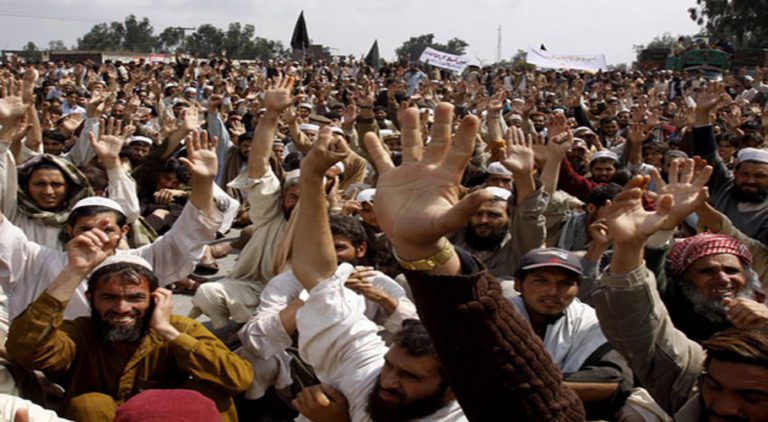Federal Minister for Finance Shaukat Tareen has presented the budget for the fiscal year 2021-22 with an outlay of more than Rs 8,400 billion.
What measures have been taken for benefit of the people? Which items will become cheaper and what will get more expensive? Has the PTI government presented a people-friendly budget?
Minimum wage increased
Finance Minister Shaukat Tareen said that the salaries of government employees are being increased by 10% on ad-hoc basis and pensions will also be increased by 10%. It is proposed to increase the minimum wage at Rs 20,000 per month.
Vaccine procurement
The coronavirus has impacted the nation for the past year as more than 900,000 people have been affected and 21,500 people have lost their lives. The government has set aside a shopping sub of $1.1 billion in the budget to procure vaccines for COVID-19
Water shortage
The nation is facing a severe water crisis leading to drought-like conditions in the coming years. The government has increased the budget allocated for water by 10 percent.
In Sindh, Rs 52 billion has been earmarked for Gaj Dam and Raini Canal, Rs 8.20 billion for Kachhi Canal and small dams in Balochistan. A further Rs 3.75 billion has been earmarked for Punjab which is expected to reduce the water crisis to a large extent.
Agriculture
The government has earmarked Rs12 billion for the agriculture sector in the next fiscal year 2021-22 to ensure food security across the nation.
Out of the Rs12 billion, Rs1 billion has been allocated for tackling the locust threat while another Rs2 billion has been set aside to enhance the output of different crops. while Rs1 billion will be spent on commercial olives cultivation.
The government will use Rs3 billion for the overhaul and improvement of waterways. It will provide interest-free loans for farmers. They can secure a loan of Rs150,000 for a single crop while Rs200,000 can be borrowed to purchase tractors or agriculture machinery.
Education
The budget of the Higher Education Commission (HEC)’s has been increased by around Rs15 billion compared to the outgoing year.
The federal government earmarked Rs108 billion for development and non-development expenditure of the higher education sector. An amount of Rs42.4b has been earmarked for 127 ongoing and 39 new development schemes.
Food prices
The finance minister announced that there was no new tax being imposed on the salaried class in the budget. The regulatory duty on the import of cocoa paste, butter, and powder will be reduced. This could reduce the price of food prices.
The budget document noted that the fruit juice sector faced an “adverse situation” due to the pandemic while the prices of fruit juices had also been increased after the imposition of the federal excise duty which will be withdrawn.
The price of edible oil, ghee, chicken, and steel will be reduced. Shoes, books, magazines and agricultural equipment will also be cheaper. The price of cosmetics and make-up products made n Pakistan will also be cheaper.
Small cars
Locally manufactured cars having an engine capacity of 850cc or less will be exempted from value-added tax (VAT) while the sales tax on these cars will also be reduced from 17pc to 12.5pc.
Additionally, four-wheelers will also be exempted from federal excise duty. So, if you were looking to buy a new ride for yourself, it’s going to be easier on your wallet than you expected. The import of electric vehicles will be exempted from VAT while sales tax on locally produced electric vehicles will be one percent.
The government will also impose a tax on ‘on money’ for vehicles disposed of without registration. ‘On money’ refers to a process whereby buyers pay extra money to car dealers for instant delivery of of their vehicles.
Mobile services
The government has set federal excise duty (FED) on mobile phone calls longer than three minutes at Rs1 per call, Rs0.1 per SMS and Rs5 on every GB of internet data.
The decision is being taken to receive reasonable revenue from the telecom sector and could affect up to 98 million people if implemented.
However, Energy Minister Hammad Azhar denied the FED would be applied to internet data, saying the prime minister and the federal cabinet had not approved it and will not be added to final draft of the Finance Bill.
Telecom
The federal excise duty on telecommunication will be reduced by 1 percent from 17 percent applicable previously Withholding tax (WHT) on telecommunication services will also be reduced to 3 percent.
Electricity price
The government has not imposed any new charges or increased the power tariff in the budget. However, the threshold for withholding tax on the monthly electricity bill for domestic users who are not on the Active Taxpayers List (ATL) will be reduced from Rs75,000 to 25,000.
This means that consumers whose electricity bill is Rs25,000 or more and who is not on the ATL will have to pay withholding tax.



































